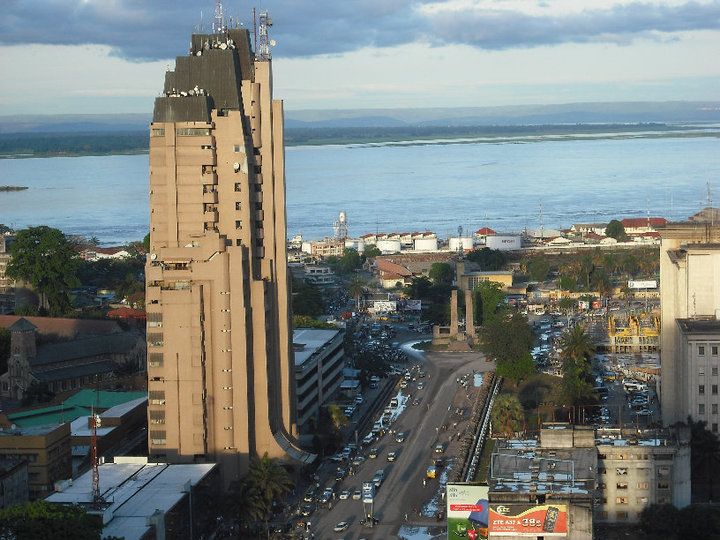The Congolese tax system is declarative. For taxpayers, this means having to sign their tax returns on time. Declarations must be complete and correct; the tax liability for each taxpayer must have a justification for the declared items. Thus, the tax authority can exercise tax control over the written statements of the taxpayer. To sign the tax return, you must first have information about your tax obligations. Every citizen in the tax area needs to know this. Some taxes are the exclusive jurisdiction of the provinces, these are property tax, vehicle tax, tax on rental income, and taxes on mining and hydrocarbons by article 204 of the Constitution.

Direct taxes
The essence of direct tax is that the tax burden and the subject of the tax remain constant. In other words, the taxpayer cannot, in principle, transfer the subject of the tax. Therefore, the tax is paid periodically or annually.
Property tax
This tax applies to the residential properties of buildings and structures and depends on the nature of the buildings and settlements in which the buildings and structures are located. By section 204 of the Constitution, this tax falls under the exclusive jurisdiction of the provinces.
Vehicle tax
The flat rate of this tax is set according to the weight and power of each type of vehicle.
It is worth noting that another tax applies to vehicles – a special traffic tax or sticker, created by Decree-Law No. 88/029 on July 15, 1988.
State-owned vehicles are exempt from this tax (at all levels: regions, cities, administrative districts); institutions, associations and religious, scientific, or charitable organizations; foreign countries.
Tax on the mining and oil industry of the region
It is a land tax provided by DR Congo to all private corporations, allowing the exploration or extraction of minerals and hydrocarbons.
The tax applies to companies that are involved in the extraction of minerals and hydrocarbons.
All stages of production are taxed, be it manual labor or scientific research.
The statutory rate for mining and hydrocarbons is $ 0.04 equivalent per Congolese franc and $ 0.02 for research.
The tax is levied on both individuals and legal entities that are allowed to mine or conduct research.
The tax is paid in the region in which the work is carried out.
Rental income tax
This is a tax on the rental or lease of buildings and land in DR Congo. It is distributed between the owner and his tenant. The interest rate is set at 22% of the rental amount, with 2% paid by the lessor and 20% by the lessee. Both taxpayers are required to report their tax liabilities separately, the lessee withholds the tax at the place where the cash is issued and signs the statement on behalf of the landlord.
Personal income tax
It is a tax that is charged on income from movable capital invested in the Democratic Republic of the Congo. Article 13 of Law No. 69-006 of February 10, 1969, lists the different types of taxable income on the movable property as follows:
1) Dividends and earnings from shares of related inactive companies per share;
2) Percentage of capital raised for business purposes.
The basis for calculating the tax base of this tax is:
– For national law firms: gross income.
– For foreign law firms:
– Business corporations: 40% of income;
– Companies other than corporations: 50% of income.
– Companies other than corporations, national or foreign organizations with headquarters and main administrative offices in the Democratic Republic of the Congo.
Income and profit tax
This is a tax that is “embedded” in:
– the interests of all industrial, commercial, handicraft, agricultural companies, real estate companies, including gifts and benefits, whatever;
– the profits of individuals, regardless of their religion, profession;
– profits of industrial, commercial, handicraft, agricultural or real estate companies, temporary associations that pay the tax.
About income tax, it is paid by persons carrying out independent activities and other income-generating activities. The application must be submitted no later than March 31 of the year following the year in which the profit was made.
The declaration, duly completed, and signed, must be submitted by the payer or his representative to the tax office, after which the tax is paid to the bank account of the Treasury.
The rate of this tax is:
– 40% of the declared profit;
– one-thousandth of the declared turnover (in case of loss).
– Exempt from income and profit tax:
– The state, regional, territorial entities, and state-owned companies have more of their own than state resources.
– Non-profit associations and public utilities, are subject to conditions determined by law.
Value Added Tax (VAT)
The value-added tax in the Democratic Republic of the Congo was introduced, officially on January 1, 2012, and replaced the sales tax.
This is a tax that is paid by the end consumer of a product or service. It is included in the retail price of a product or service. The tax is administered by the Directorate General of Customs and Excise for Imports and the Directorate General for Taxes on Domestic Consumption. The current VAT rate is 16% for domestic consumption and imports. For exports, the second rate of 0% applies.
Thus, the Democratic Republic of the Congo has a tax system that is poorly informed by taxpayers. We believe that it is useful for the Democratic Republic of the Congo to adopt the experience of the Russian Federation about informing taxpayers, for this, the tax administration should conduct awareness campaigns among the population to explain to taxpayers the essence of the tax obligation.


